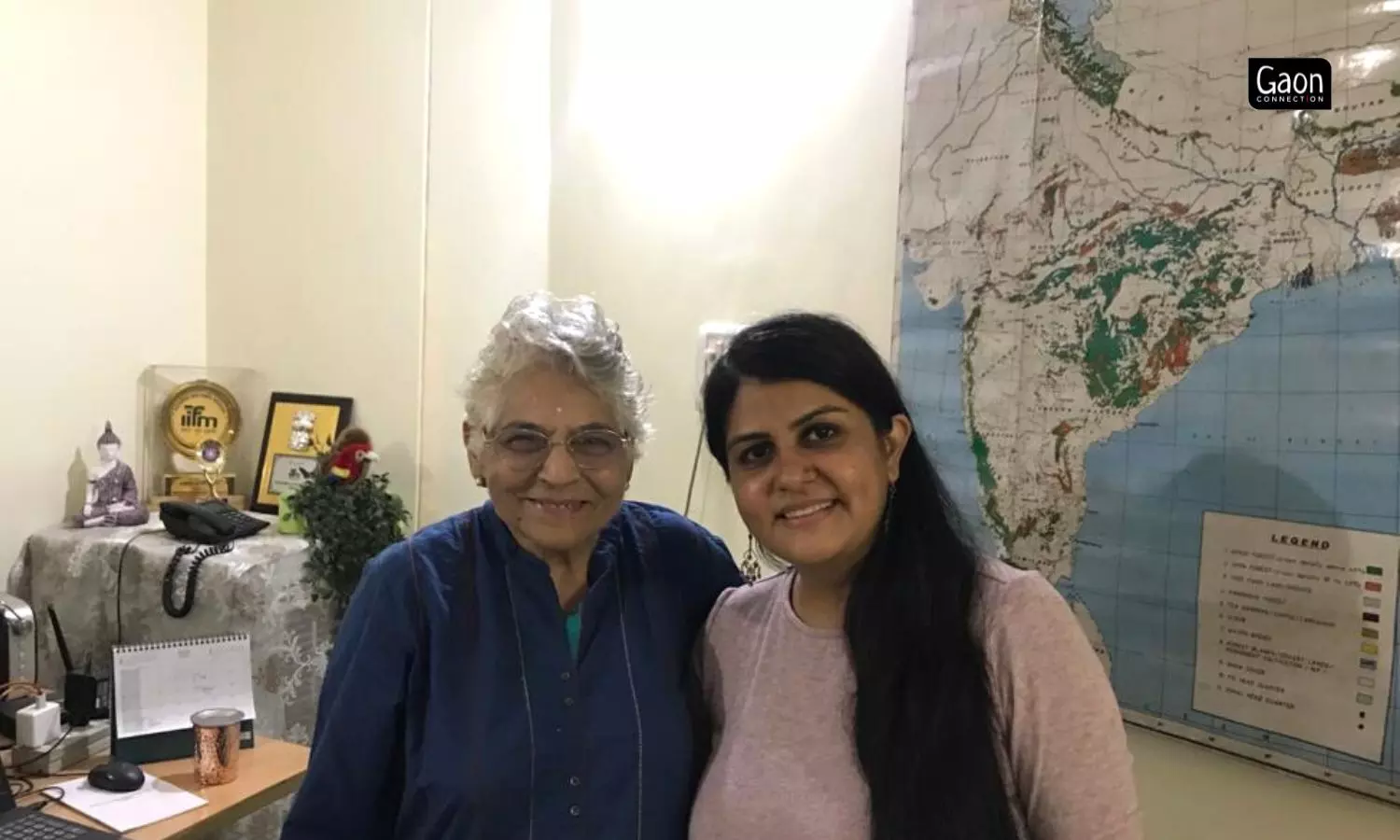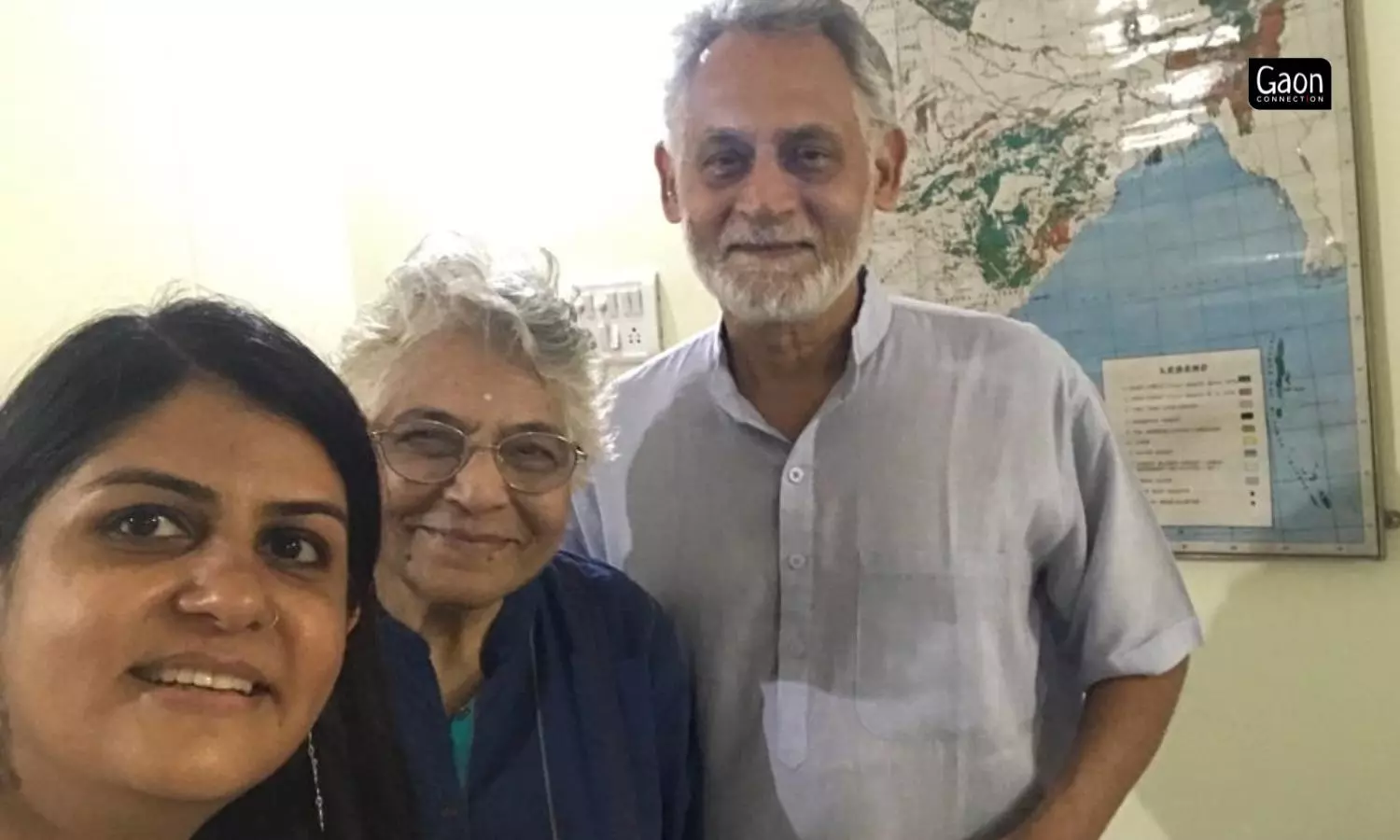I watched the clouds gather over the skies in Mumbai from my windows thrown open to welcome the monsoon winds. Jostling and floating northwards, they seemed to be in a hurry to make up for the late arrival of the monsoon this year.
Moisture-laden monsoon clouds are referred to as a river in the sky; an ‘invisible river system’ that sustains over 1.8 billion people in the Indian subcontinent, one of the most densely populated areas on our planet.
This year, I watched them, with a deep sense of loss and grief. For, a week ago, on June 4, Manoj Misra ji, known to us as the river warrior, had moved on, beyond the river in the sky.
It was some years ago, during the India Rivers Week held in New Delhi that I first met Manoj ji, a former Indian Forest Service (IFS) officer and a well known conservationist. It was at my presentation on ‘Monsoon: A River in the Sky’ that our discussions and exchanges began. We spoke at length about the monsoon, rivers, water bodies, and the forests.
Also Read: The Gond Warrior Queens, a Hill Fort and its Baoris
I write often about rivers and the environment, but I am struggling to write an obituary for the son of the rivers, Manoj ji, whose columns I have edited and published regularly on Gaon Connection.
Manoj ji was a tireless conservationist who spent his entire life writing, speaking and fighting, in the courtrooms and on the ground on behalf of the rivers. And, today I struggle to remain dry-eyed as I open a document, titled ‘Manoj Misra ji Obituary’ on my laptop. I was so ill-prepared for this.
I always looked forward to Manoj ji’s columns in Gaon Connection. Knowledgeable, he wrote about rivers, water bodies and the larger environment in a way that informed and engaged anyone who read them.
He wrote of rivers, their historical significance; he described treks alongside them; he elaborated on the architecture influenced by them; and of course, on farming and livelihoods dependent on water bodies. Some of my favourites were the article he wrote for Gaon Connection on Gond tribal queens, forts and boaris (traditional stepwells), and the column that delved into a 1,000-year-old mystery about the world’s oldest still-functioning dam.
Also Read: Raja Bhoj, the great Bhojpur lake and its Mandideep ‘island’
Millions of stories spring out of the rivers, and through his work and his writings, Manoj ji kept that folklore alive. He believed that it was these stories that forged a connection between the people and the rivers. And, that was important if rivers in India had to flow and not run dry.
Manoj ji had a special spot for the smaller rivers of the country. (He is of course, well known for his Yamuna Jiye Abhiyaan). He wrote about Katha, a lesser-known tributary of Yamuna; and river Hindon, another tributary of Yamuna. He often reiterated, ‘A river is as healthy as its sickest tributary’.
Manoj ji minced no words when it came to criticising policies/programmes that were detrimental to rivers. He spoke out strongly against various development projects, including the elevated road, on the Yamuna riverbed.
He wrote in Gaon Connection that ‘any “afforestation” effort like Namami Gange, where trees are raised in active floodplains of rivers, is grossly misplaced and should be avoided’. He warned against creating a sanitary landfill along the banks of the Yamuna.
Also Read: Miyawaki technique of planting is unnatural, avoid its indiscriminate use
I remember requesting Manoj ji to accept an honorarium from Gaon Connection for the columns he wrote for us. He refused politely: “Nidhi ji, I consider writing about rivers as my duty and can never accept any payment for it.”
In July last year, I was in Bhopal, Madhya Pradesh, and decided to surprise him with a visit. I wanted to meet his mother about whom he often posted on social media. She is a learned lady and he wrote about the delicacies she prepared during festivals.

In July last year, I was in Bhopal, Madhya Pradesh, and decided to surprise him with a visit. I wanted to meet his mother about whom he often posted on social media. Photo by Manoj Misra.
I am so grateful I did spend that evening with them. I remember asking him why he quit his IFS job at the peak of his career and if he ever regretted that decision.
In the course of our conversation, he told me about his life as an IFS officer and how he was there when Chhattisgarh was carved out of Madhya Pradesh. About leaving the services he said, “Had I not quit, I could not have dedicated myself completely to rivers and river systems.”
Also Read: Riverbed is no place for a road
Manoj ji, called me up a couple of months ago. He told me he was working on his next book on 50 years of The Water (Prevention and Control of Pollution) Act, 1974. He requested me to write a chapter on ‘Women and Water’ based on my two decades of environment reporting.

Manoj ji was working on his next book on 50 years of The Water (Prevention and Control of Pollution) Act, 1974. He requested me to write a chapter on ‘Women and Water’ based on my two decades of environment reporting. Photo by Nidhi Jamwal.
He gave me a succinct and clear brief and I managed to submit the chapter. He said he was pleased with what I had written. He also told me he was in a hurry to complete the book. He was still working on the book when coronavirus made him sick in April, and in just a month, a day before Environment Day, he breathed his last.
Rest in power, Manoj ji.


















